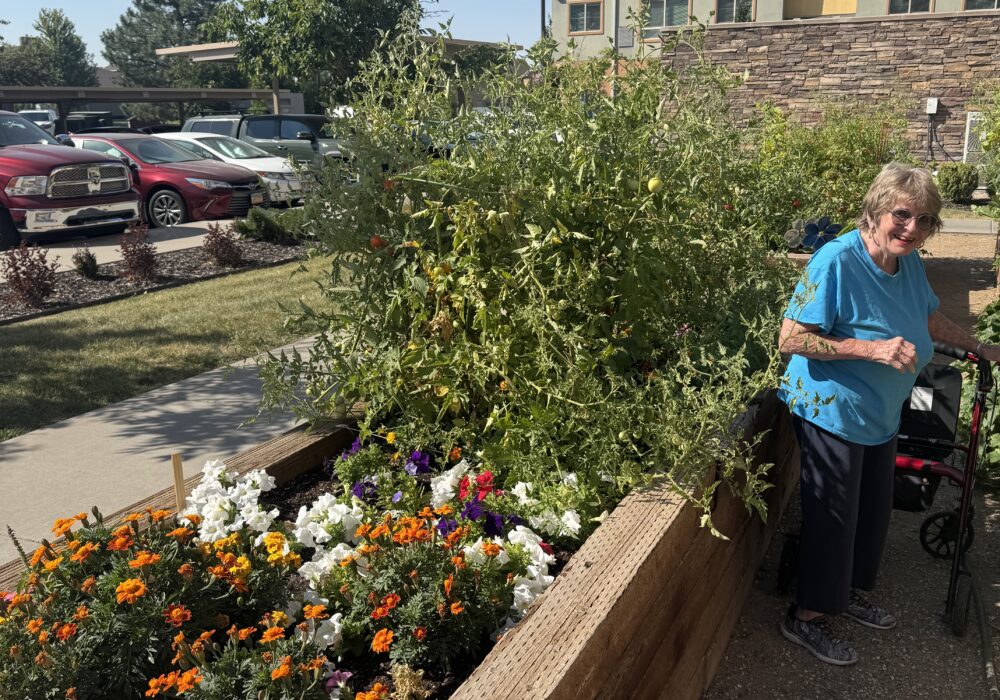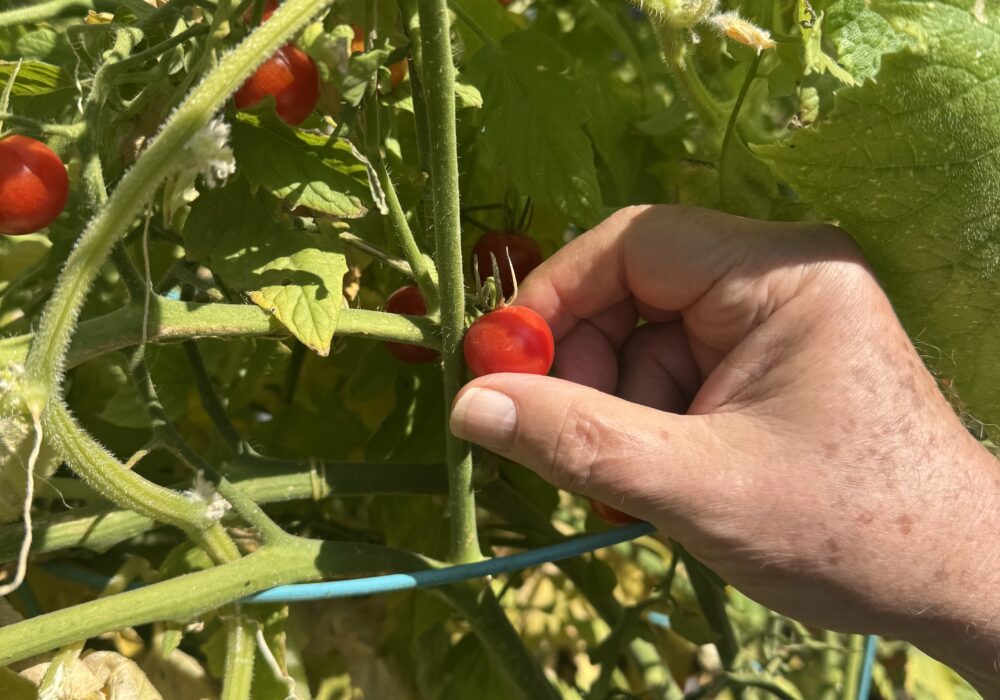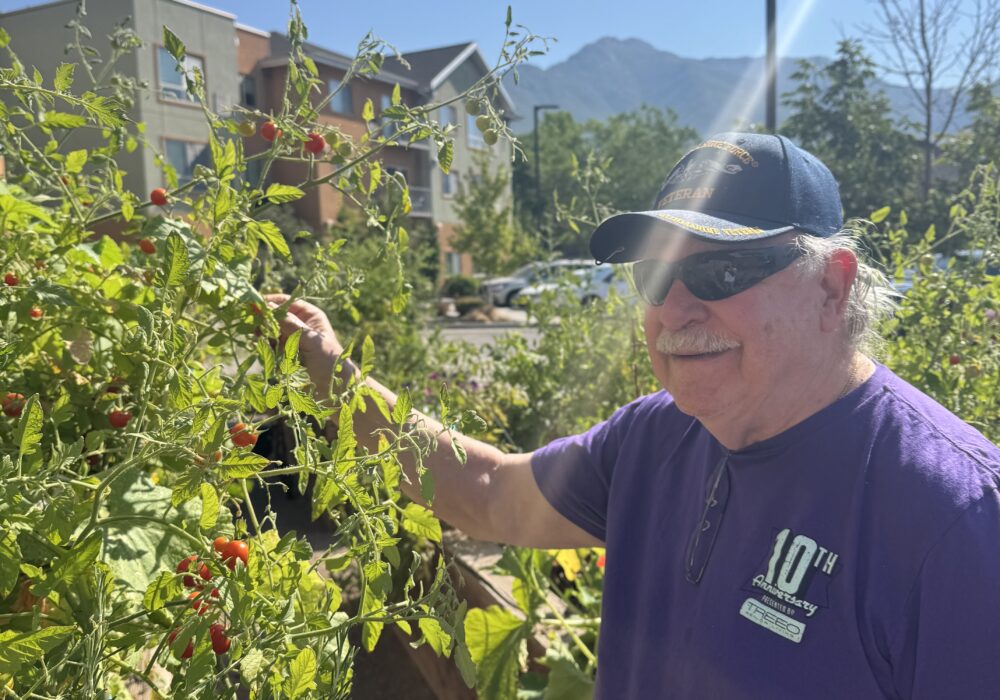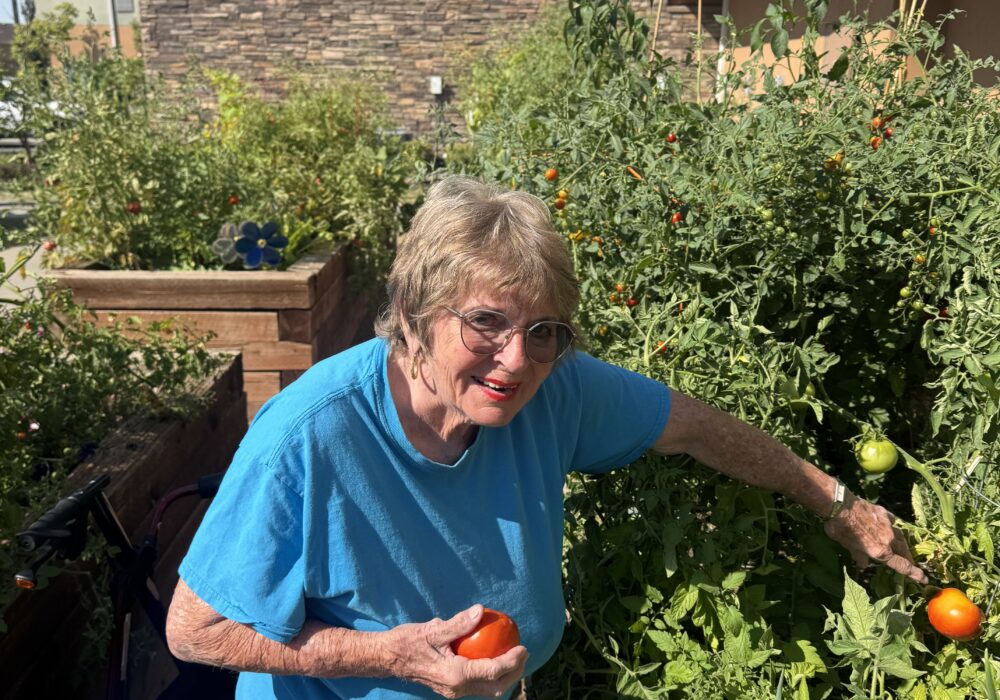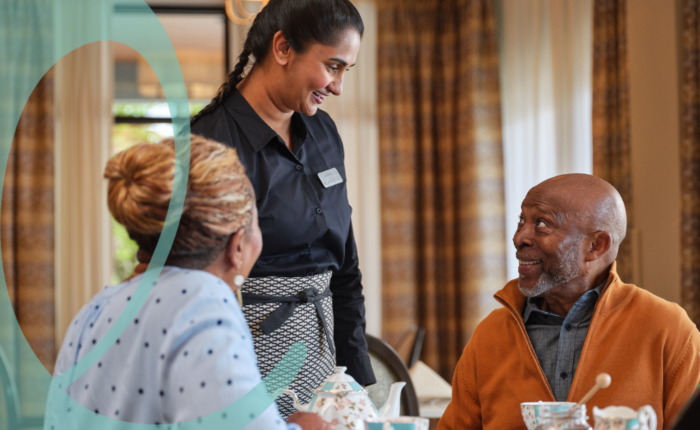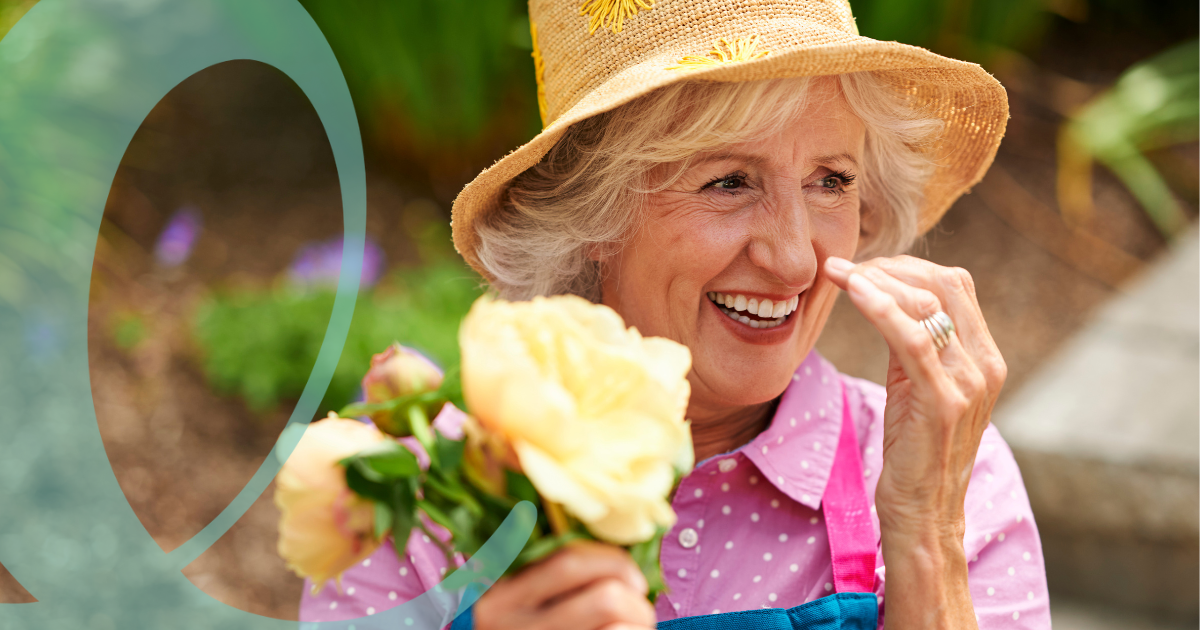
- Our Communities
- View Comments
- Treeo - South Ogden
At Treeo – South Ogden, we believe life gets better when you get your hands a little dirty. Our resident garden is more than a collection of raised beds and blooming flowers. It is a place to grow friendships, purpose, and experience joy right in our community. The garden at Treeo – South Ogden independent living is one of the most popular spots for residents to gather. Whether it’s planting herbs, tending flowers, or picking fresh vegetables, gardening brings purpose, connection, and real health benefits.
5 Ways Gardening Supports Senior Health
Gardening engages the mind and body in ways that align perfectly with PrimeFit Wellness, our signature approach to senior wellness. The fresh air, natural light, and steady movement strengthen balance, flexibility, and endurance. The focus and satisfaction of tending plants support brain health and lift mood, while the physical activity builds strength and keeps you moving with confidence.
“My father started me gardening when I was the size of a grasshopper, and he said, ‘If you have a tomato red on your birthday (August 1), then you’ve got a good garden.’ This year, I had a tomato red!” – Pat R. resident gardener
Here are more ways that gardening benefits the health of older adults:
1. Studies show gardening lowers stress.
Spending time in a garden isn’t just relaxing; it lowers stress. In a well‑controlled study, participants completed a stressful task and then either gardened outdoors or read indoors for 30 minutes. While both groups saw stress decline, those who gardened experienced significantly sharper drops in cortisol (a key stress hormone), and their mood bounced back. In contrast, the reading group’s mood continued to slip. This is one of the first experimental studies suggesting that gardening goes beyond calming the mind and restores mood.
2. Gardening has been shown to increase serotonin, reducing symptoms of depression.
There’s growing scientific evidence that friendly soil bacteria may act like a natural mood enhancer. A study from the UK found that a harmless microbe common in garden soil can activate serotonin-producing neurons in the brain in ways similar to certain antidepressants. While this effect has been observed in mice and needs more human-based research, it offers a compelling clue as to why working with soil may lift mood and reduce anxiety.
Putting your hands in the dirt can do more than nurture flowers; it might also support emotional well-being. At Treeo – South Ogden, we see it every day. The simple act of tending a plant can ease stress, brighten a mood, and help you feel more connected to the moment (and each other).
3. Gardening may improve cardiovascular health.
Gardening isn’t just good for your plants. It’s good for your heart too. The mix of digging, planting, watering, and walking around the garden provides moderate physical activity that can help you reach the recommended 30 minutes of daily exercise.
A large study in Sweden followed more than 4,000 adults over the age of 60 and found that those who regularly gardened or did other hands-on, non-exercise activities had up to a 30% lower risk of heart attack and stroke compared to those who were less active. This type of steady, moderate movement helps keep blood vessels flexible, supports healthy circulation, and can make daily activities feel easier.
Spending time outdoors in the garden also means more exposure to sunlight, which naturally boosts vitamin D levels. Adequate vitamin D is linked to stronger bones, better immune function, and a healthier heart. Together, these benefits make gardening an enjoyable and sustainable way to care for your cardiovascular health.
4. Seniors who garden may improve their mobility and strength.
Garden tasks such as planting, bending, and reaching involve using muscles that support flexibility, core stability, and balance, key elements in preventing falls. In a recent study, older adults who gardened regularly showed better performance in balance and gait-speed tests, suggesting reduced fall risk. For many residents, gardening isn’t just a pastime; it’s a form of gentle, functional physical activity. Those recovering from illness or battling mobility challenges can benefit especially from the low-impact strength-building movements that gardening requires.
In short, gardening not only helps keep muscles active and joints stable, but it also offers tangible benefits that can enhance everyday mobility and reduce the chances of a fall.
5. Gardening supports overall brain health and may lower the risk of dementia.
A long-term study from the University of Edinburgh found that older adults who gardened regularly showed better performance in thinking skills (like memory, problem-solving, and word fluency) even into their 80s and 90s, compared to those who didn’t garden. Another study reports that daily gardening can reduce the risk of dementia by about 36 percent, likely because it combines physical activity, problem-solving, fine motor work, and sensory stimulation, all of which support brain function.
Thinking About a Move?
Our gardens are designed to make it easier for everyone to take part. Raised beds and container gardens reduce bending and strain. Lightweight tools make the work easier on the hands and joints. Comfortable seating offers a place to rest and enjoy the view.
If you have been considering senior living, our garden is just one example of how life at Treeo – South Ogden can help you stay healthy and connected. Here, you can plant new roots in every sense of the word, surrounded by people who share your interests and a team that supports your goals.
Schedule a tour and see the garden for yourself. You might find your next chapter begins with a seed.
Find a Leisure Care Community
Better with age, exceptional with us! Come and see how Leisure Care communities are helping seniors rediscover (and sometimes reinvent) themselves.



